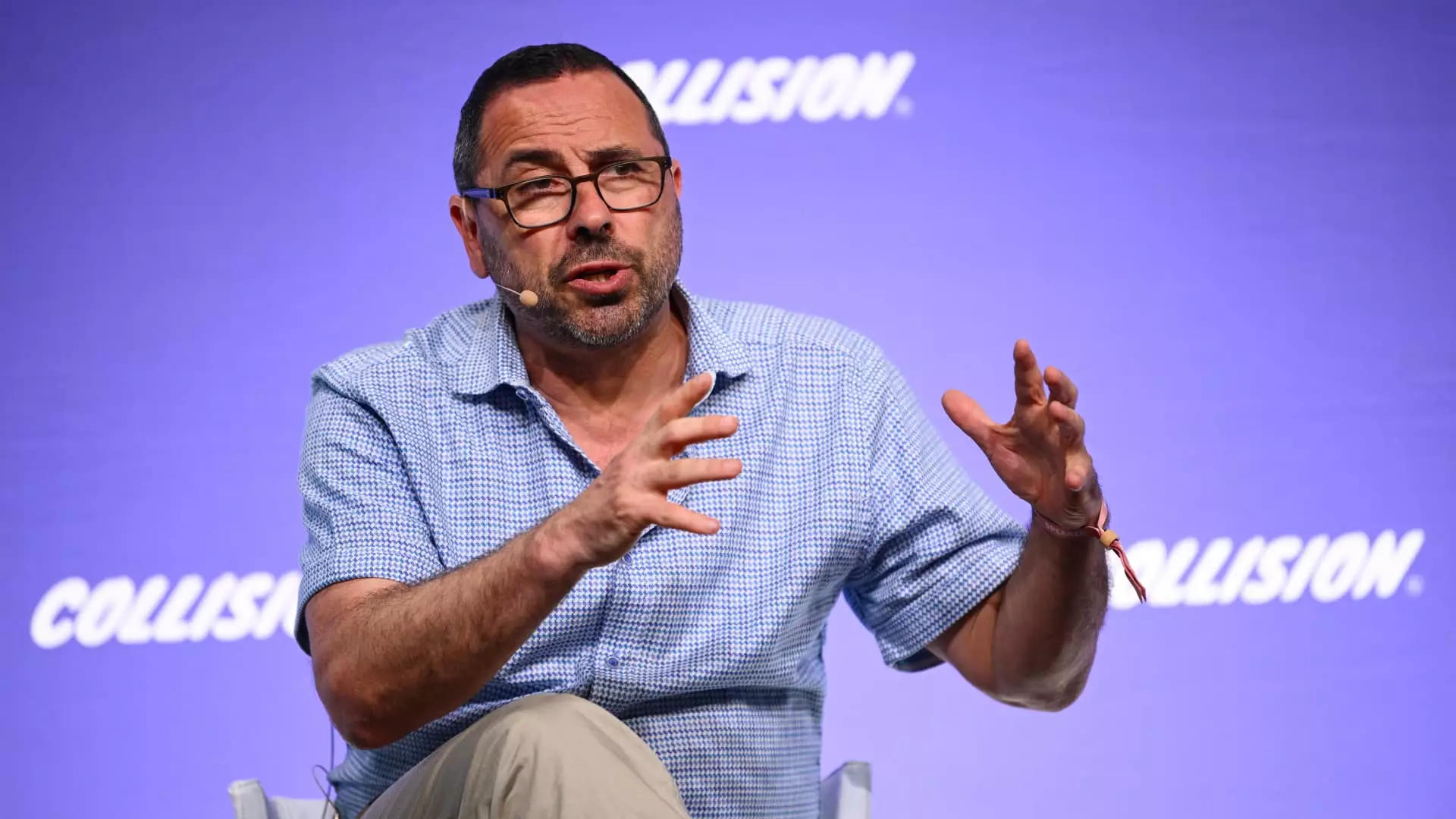In the ever-evolving tech landscape, the race to capitalize on artificial intelligence (AI) advancements has entered a new chapter with the impending Initial Public Offering (IPO) of Cerebras Systems. As the first major venture-backed tech company attempting to enter the public market in the U.S. since April, Cerebras is determined to leverage the soaring interest in AI, primarily driven by Nvidia’s skyrocketing market valuation of $3.3 trillion. While the company presents strong prospects rooted in AI infrastructure, the road ahead is fraught with significant obstacles that could hinder its ambitions to successfully ride the Nvidia wave.
Founded in 2016 and headquartered in Sunnyvale, California, Cerebras carved its niche by developing high-performance chips designed to optimize AI workloads. With a compelling claim that its chips outperform Nvidia’s offerings in speed and efficiency for AI model training, Cerebras made headlines when it unveiled its first processor three years after launching. The company’s latest reports show robust sales growth, tripling from $78.7 million in 2022 to a promising $136.4 million in the first half of 2024. Even more eye-catching is its commitment from a Middle Eastern customer to purchase $1.43 billion worth of systems and services, highlighting a clear demand for its technology.
However, beneath this upward trajectory lies a precarious dependency on a singular client, raising significant concerns for potential investors.
The stark reality of Cerebras’ reliance on one customer—G42 from Abu Dhabi—who contributed a staggering 87% of the company’s revenue in the first half of the year, poses a serious red flag. While it may seem advantageous to secure such a large purchase agreement, this overreliance on a single entity creates a precarious situation, particularly in the high-stakes tech ecosystem where diversification is crucial.
In its prospectus, Cerebras recognizes the need to expand its customer base and eyeing sectors like healthcare and biotechnology, yet the lack of additional clients in its filings raises eyebrows. Despite naming a handful of companies, including AstraZeneca, GlaxoSmithKline, and Mayo Clinic on its website, none of these appear to have significantly contributed to its revenue streams thus far. This lack of diversity could present substantial risks, especially if G42’s commitment wavers or economic conditions shift unfavorably.
Amidst the excitement surrounding its IPO, Cerebras faces obstacles beyond contracts and customer loyalty. Speculation about a potential delay in its IPO process has begun to circulate, particularly due to security concerns tied to G42’s involvement. The U.S. Treasury Department’s Committee on Foreign Investment (CFIUS) is scrutinizing the implications of foreign investments, with particular attention on G42’s historical associations with Chinese firms. Despite G42’s assurances that it has divested from Chinese entities, the uncertainty surrounding regulatory approval may deter institutional investors who habitually prefer more unencumbered opportunities.
Adding to these complications is Cerebras’ selection of underwriters; the absence of major investment banks like Goldman Sachs and Morgan Stanley—which are known for managing high-profile tech IPOs—suggests a hesitance amongst top-tier banks to back the offering. Instead, Citigroup and Barclays have taken on the roles of lead underwriters, which may indicate reduced confidence among investment circles due to the company’s challenges, including its regulatory scrutiny and singular revenue reliance.
CEO Andrew Feldman’s past as a vice president of marketing at Riverstone Networks is significant and somewhat controversial, having pleaded guilty to circumventing accounting controls over a decade ago. Although this has shaped apprehension regarding Feldman’s leadership, observers are drawn to his track record; he previously sold SeaMicro to AMD for over $300 million. This experience could instill some confidence among investors, but past mistakes have a way of resurfacing, especially in volatile markets.
Cerebras’ ongoing battle to transition from a startup to a publicly traded company is emblematic of broader challenges facing tech firms in today’s climate. Not only does the company have to fend off skepticism about customer concentration and potential regulatory hurdles, but it must also navigate a recovering IPO market characterized by lower valuations and diminished investor appetite.
Despite the daunting road ahead, the enthusiasm around AI and its applications continues to fuel investor interest. Mizuho Securities’ estimation that Nvidia currently dominates the AI chip sector, controlling 95% of the market for AI training and inference models, underscores the immense potential in this space. With retail investors like Jim Fitch expressing optimism about Cerebras’ promise, particularly its powerful WSE-3 chip, there remains significant room for the company to carve out its own niche.
While Cerebras Systems stands on the precipice of a potentially game-changing IPO, its future hangs in the balance, grappling with the dual forces of opportunity and risk. As the company strives to demonstrate its resilience and ability to expand beyond a single, influential client, the stakes couldn’t be higher in this landscape dominated by AI innovation.

